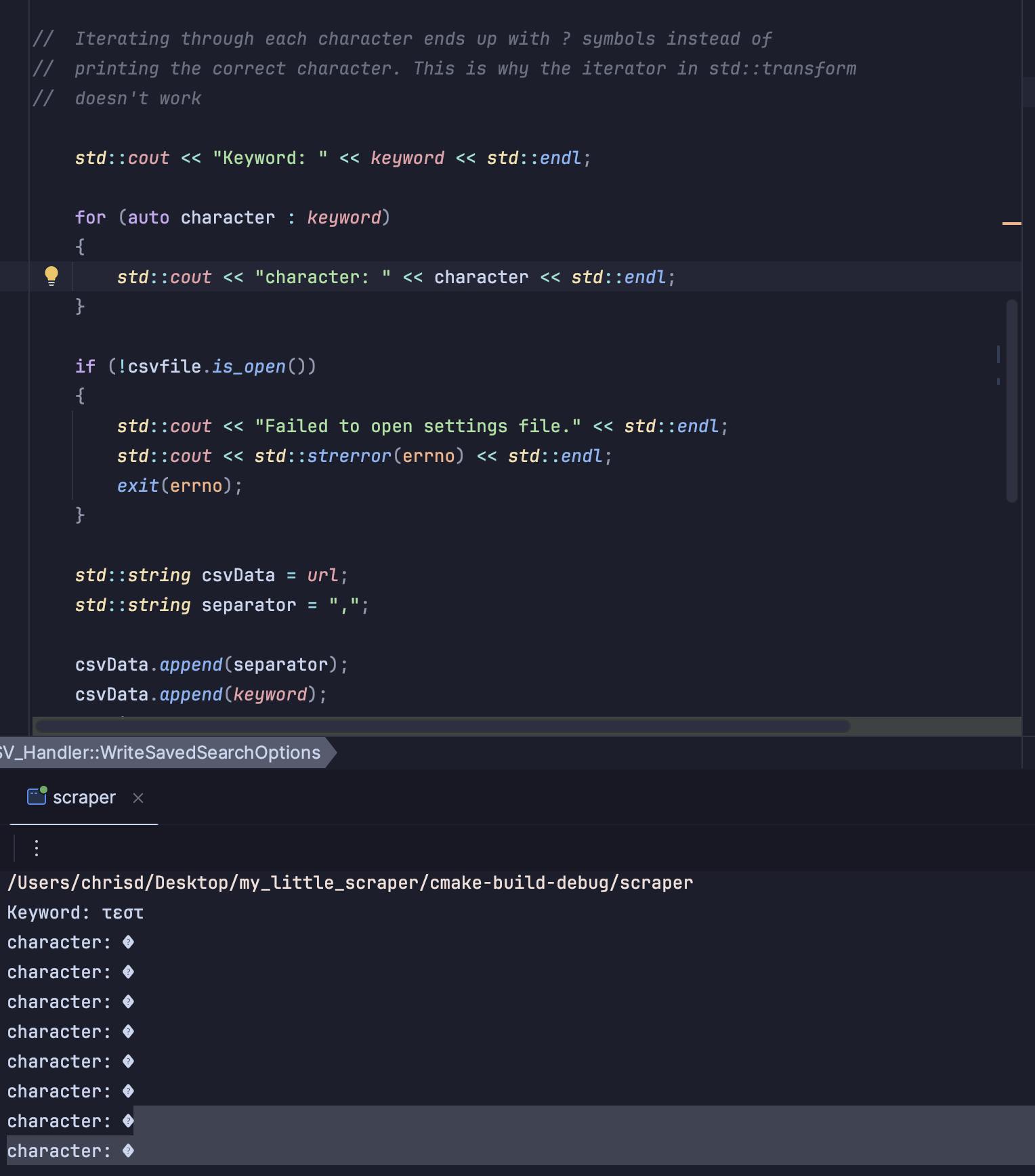I think is much more complex than it needs to be. Am I missing something that should be quite obvious? I tried fixing it myself but I was unable to get the text from the text fields. In the end, I reverted all wide strings to standard strings.
I also found out that even though a std::string variable can extract the content of a text field properly, iterating through it character by character will output "?" instead of the actual character.

This didn't work:
std::cout << "Keyword: " << keyword << std::endl;
std::setlocale(LC_ALL, "el_GR");
std::cout.imbue(std::locale());
for (auto character : keyword)
{
std::cout << "character: " << character << std::endl;
}
This didn't work either:
std::cout << "Keyword: " << keyword << std::endl;
std::setlocale(LC_ALL, "el_GR");
std::wcout.imbue(std::locale());
for (wchar_t character : keyword)
{
std::wcout << "character: " << character << std::endl;
}
Nope:
std::locale::global(std::locale("el_GR"));
std::wcout.imbue(std::locale());
for (wchar_t character : keyword)
{
std::wcout << "character: " << character << std::endl;
}
I even read a post that it might be a good idea to use Objective-C as I am on a Macintosh but I decided to avoid it as I do not want to combine Objective-C and C++. I decided to download the boost-locale library to see if it could help me fix the problem. But this is a task for the next day.
I also read a great article that explains a lot about Unicode and character encoding. It might be a little old but I think the information in the article is something that everyone should know. Link:

